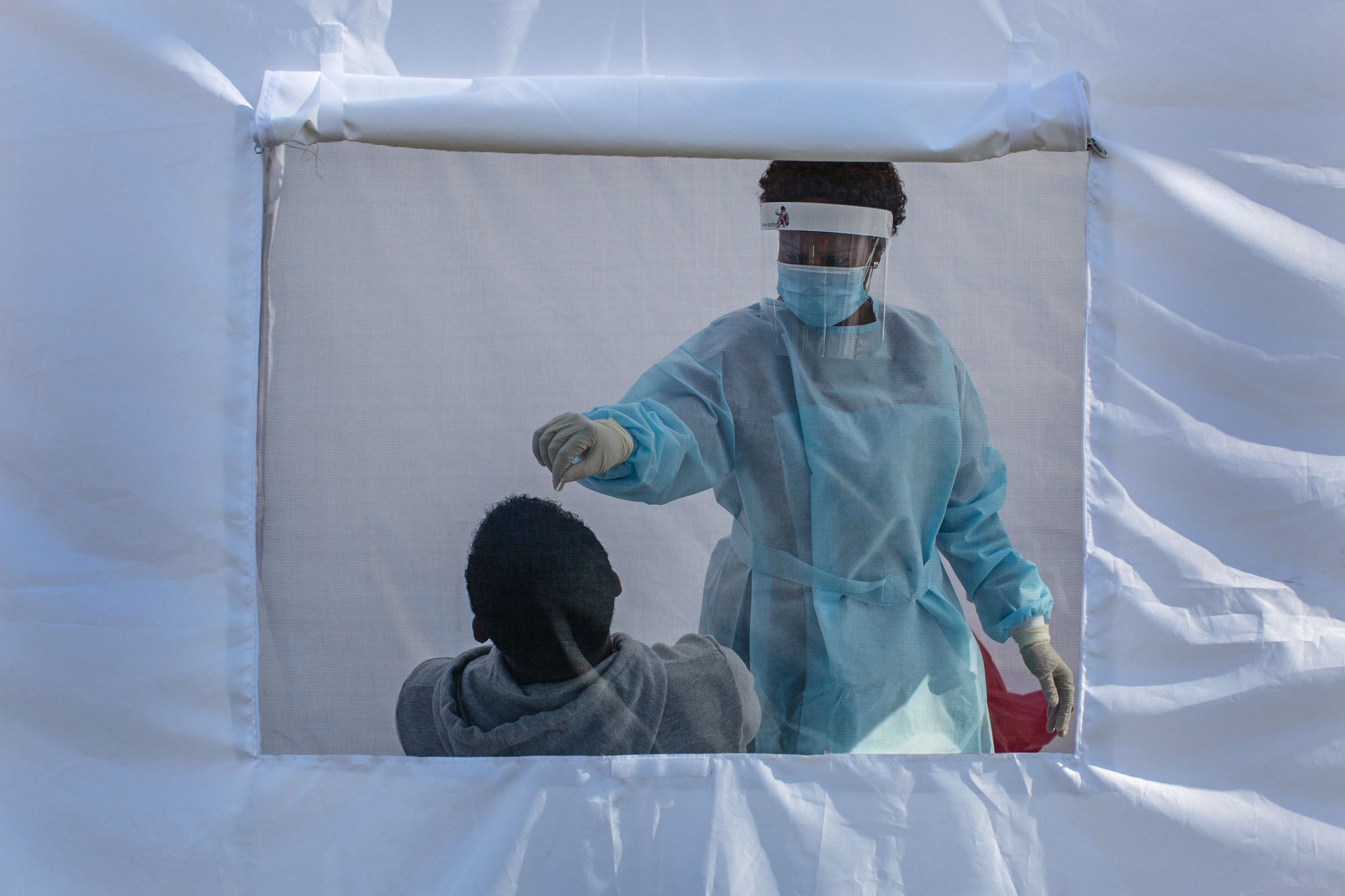History as tragedy and drama
According to Karl Marx, world-historical events always happen twice. Once as a tragedy, the other time as a farce. ("18th Brumaire of Louis Napoleon"). The global COVID-19 pandemic is not a farce. It is a drama and a major challenge for individuals and for national and global communities. In retrospect, the pandemic seems like an echo of the past, which has no shortage of dramatic events. Between 2014 and 2016, a devastating Ebola epidemic swept through West Africa. People prioritized the containment of the virus. Other diseases, especially in remote areas, went untreated. It is estimated that 500,000 more people died of malaria and pneumonia during the Ebola epidemic than on average. This is known as "collateral damage."
Worsening social inequality
Then came SARS-CoV-2. The whole world focused on gaining a better understanding of the virus and on containing it. Switzerland temporarily closed schools, restaurants, stores and the borders. The measures led to educational backlogs among children, especially from underprivileged backgrounds, and an increase in mental illness. Collateral damage in Switzerland. Collateral damage in Africa. The lockdown in South Africa has deprived day laborers in South African townships of their livelihoods. As a result, hunger, domestic violence and communities are slipping further into poverty. Similarly, the gap between privileged and less privileged countries in combating the COVID-19 pandemic could not be greater.
In addition to the unequal distribution of vaccines, many countries in Africa lack oxygen equipment, protective clothing and diagnostic tests. The pandemic is already overburdening fragile health systems: the negative effects are clearly felt in the fight against malaria, AIDS and tuberculosis. In other words, in health programs that require close cooperation with the authorities and the local population. Assembly, travel restrictions and curfews may be important and right in the fight against SARS-CoV-2, but the increase in malaria transmission now observed in many African countries is closely linked to the pandemic. The gains made over the past two decades in malaria control are now at risk.
Linking health and social systems to combat collateral damage
The indirect impact of SARS-CoV-2 is significant, not only for healthcare, but also in social and economic terms. The crisis has shattered trust between people, institutions and political leadership. If Switzerland wants to assert its role and responsibility for the right to health worldwide, then a systemic approach and perspective is needed at the global level that links the health and social system with the economic dimensions. This is the only way to do justice to the negative impacts of COVID-19 in the education, mental health, and economic sectors in Africa and globally.
"Despite all the positive and encouraging signs, we must apply our knowledge and experience more consistently in the future with a global, distributional view."
Great opportunities for research and development of new drugs
Above all the somewhat dreary lines, it should not be overlooked that the SARS-CoV-2 pandemic has led to a great surge of innovation precisely in the treatment or development of new drugs and vaccines. Numerous clinical trials have investigated whether already approved drugs are also effective against coronavirus transmission or for the treatment of covid-19 disease. The World Health Organization's "Solidarity clinical trial for COVID-19 treatments" explored the effect of redemsivir (originally for Ebola) or hydroxychloroquine (originally for malaria/arthritis) on the course of severe corona disease.
Other research provides evidence on the efficacy of monoclonal antibody therapy or what anticoagulation dose is most appropriate for covid 19 patients. This momentum in research and development of new drugs must be maintained in the future. SARS-CoV-2 will not have been the last pandemic. Whether we have now learned the lessons from it? Despite all the positive and encouraging signs, we must apply our knowledge and experience more consistently in the future with a systemic approach and with a global, distributional view.
This text was originally published by Marcel Tanner, Director Emeritus of Swiss TPH, on Medicus Mundi.
